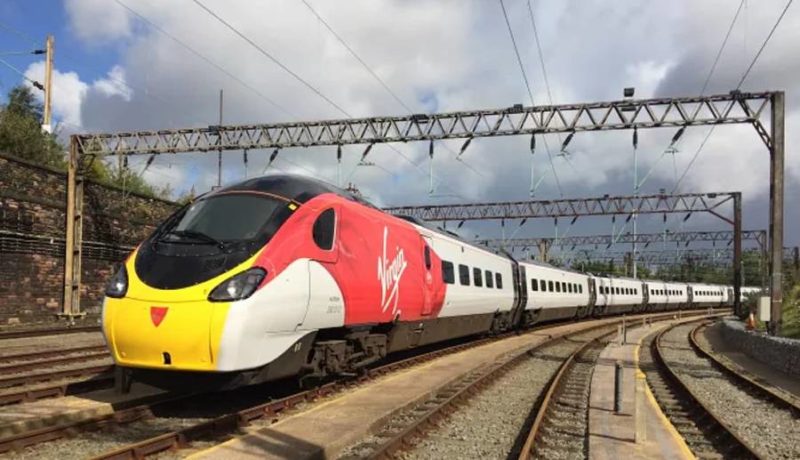Approved unanimously in Sacramento on Tuesday by a committee overseen by California Treasurer Fiona Ma, Virgin Trains-Brightline can sell up to four times the allocation amount, raising as much as $2.4 billion for the project. The company, which operates the Brightline rail service in South Florida, is also awaiting word on a $200 million private activity bond allocation from Nevada that would raise an additional $800 million. The U.S. Department of Transportation last month provisionally awarded the project $1 billion of private activity bonds, raising potential funding for the 180-mile-long project to $4.2 billion. That’s just $800 million shy of the railway’s $5 billion construction tab.
“West Coast, we’re coming for you,” Brightline tweeted on Tuesday afternoon. “Today, we were officially approved for tax-exempt bonds for our privately funded rail line between Las Vegas and Southern California. This means on track to break ground by end of this year.”
Trains on the line will be fully electric–a move that pleases California officials because they would eliminate vast amounts of automotive carbon dioxide and tailpipe exhaust–and run at 200 miles an hour alongside U.S. Interstate 15 highway. The target is to move riders between Southern California and Las Vegas in about 90 minutes.
Backed by Fortress Investment co-founder Wes Edens, the private project is to be built within about 36 months on a right-of-way through the desert that was approved by the U.S. government years ago. During that period it will create 30,000 construction jobs, and 1,000 permanent jobs, Brightline spokesman Ben Porritt tells Forbes. Although California awards the tax-exempt bond allocations, which are provided by the federal government, funds raised come entirely from private investment. At this point, the Virgin named is being used for marketing purposes. Richard Branson has told Forbes that he and his company haven’t invested in the U.S. rail project, but that he may in the future.
Unlike California’s publicly funded high-speed rail project that has run into major construction delays and cost overruns as it works to connect city’s in the state’s Central Valley, the Virgin-Brightline project doesn’t run through any heavily populated areas between Southern California and Las Vegas. To maximize ridership, however, it will have to eventually extend the line from Apple Valley, about 90 miles east of Los Angeles, to a suburban location connected by existing commuter rail lines.
The California bond allocation must be sold by September, with construction to start late this year, Porritt said. Currently, Brightline is also building an extension of its West Palm Beach to Miami line all the way to Orlando. Construction work on that project continues even as Brightline had to temporarily suspend daily rail service in South Florida at the end of March, due to stay-at-home efforts to reduce the spread of COVID-19.




Comment (0)